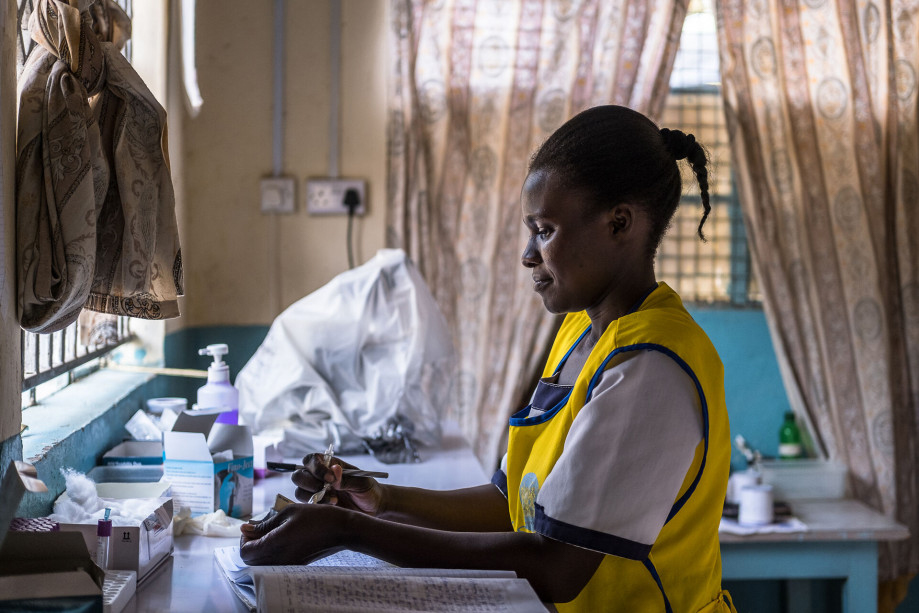The following article was co-authored by MEPs Charles Goerens and Urmas Paet. At the beginning of the pandemic, Team Europe committed to deploy an unprecedented global response to deal with the pandemic and its social and economic consequences: almost 40 billion euros of investments to support our partners and allies across the globe. A critical part of this endeavour will happen through multilateral initiatives such as the COVID-19 Vaccines Global Access (COVAX) to which the EU has committed 1 billion euros, although today, less than half of that amount is actually available. In the global response against COVID-19, the EU has shown leadership, solidarity and commitment to honour its values. Now, it needs to show resolve.
In the next months, the Parliament and Council will try to agree the EU budget for 2022. The stakes could not be higher. The same week the EU reached the milestone of fully vaccinating 70% of the adult population, the World Health Organisation warned that Africa was on the brink of missing a key target: vaccinating the most vulnerable 10% of its population before the month end. The lack of COVID-19 vaccines in Africa is just the tip of the iceberg. Worldwide, 2.8 billion people are affected by poverty-related diseases such as HIV and AIDS, tuberculosis, malaria and neglected tropical diseases, costing millions of lives, and ravaging families and communities trapping them in a cycle of poverty and discrimination. More than 30 million African children under five get seriously ill from vaccine-preventable diseases and over half a million die every year. Much progress has happened in the last decades but clearly, there can be no space for complacency. Science and solidarity are helping to address these global health challenges yet, when it comes to infectious diseases, an unfinished business can be catastrophic. We need to do more, and we need to do it now.
As leading negotiators from the European Parliament Committees on Development (DEVE) and Foreign Affairs (AFET) for the 2022 budget, we have asked the Union to fulfil its commitments without further delay. In July, both Committees adopted our joint amendments to scale up investment in human development, in particular in healthcare, nutrition, education, social protection and gender equality. Not only are these areas key to eradicating poverty, tackle discrimination and achieve sustainable development, they have also been impacted directly and disproportionally by the pandemic, which threatens to dissolve decades of socio-economic progress in low and middle-income countries (LMICs). Last year, the United Nations Development Programme warned that the global human development index was on course to decline for the first time in its history unless there was a strong policy response. A few weeks ago, the Global Fund confirmed these predictions with a daunting report on the devastating impact of the pandemic on HIV, tuberculosis and malaria programmes, with prevention and treatment services decreasing and progress against these deadly diseases stalling. The impact of COVID-19 on education and gender equality across the globe is also deeply concerning. We simply cannot ignore these realities. Our proposal is ambitious yet realistic. It respects the budgetary and policy commitments of the new development instrument, Global Europe, and focuses on using the budget line for ’Emerging Challenges and Priorities Cushion‘ instead of increasing overall appropriations or reshuffling funds from other priorities. Our goal is clear: to advance towards a durable and equitable recovery from COVID-19 by increasing and prioritising investments in human development. Pandemics do not wait. Doing too little or too late will mean leaving millions of people behind.
We have complex negotiations ahead. First, we need the support of our colleagues in the Committee on Budget (BUDG). We are confident that the Parliament will rally around our call to step up human development investments in this critical year, and we welcome the fact that members from BUDG have also tabled amendments echoing our call. Moreover, our parliamentary group just tabled an amendment calling to allocate additional 4 billion euros to COVAX in order to accelerate vaccination in LMICs. Second, we need to persuade the Council that their proposed cuts of 500 million euros to the Global Europe instrument would undermine and delay the global recovery from the pandemic. This proposal would undoubtedly have a steep human, social and economic cost. We cannot and should not deceive our partners or ourselves. The pandemic is not over, and its effects will last even longer if we do not act. In these budget negotiations, we call on the Council to match the Parliament’s level of ambition, courage and determination. Now is the time to honour our commitments and our values and put an end to a devastating health crisis by saving lives, building resilience and leaving no one behind.
Charles Goerens and Urmas Paet
 Charles Goerens is Member of the European Parliament from Luxembourg and part of the political group Renew Europe. He is Vice-Chair of the Committee on Constitutional Affairs and member of the Development Committee and the Subcommittee on Human Rights, among others. Mr Goerens has served as Minister for Cooperation, Humanitarian Action, and Defence and Minister of Foreign Affairs of Luxembourg.
Charles Goerens is Member of the European Parliament from Luxembourg and part of the political group Renew Europe. He is Vice-Chair of the Committee on Constitutional Affairs and member of the Development Committee and the Subcommittee on Human Rights, among others. Mr Goerens has served as Minister for Cooperation, Humanitarian Action, and Defence and Minister of Foreign Affairs of Luxembourg.

Urmas Paet is Member of the European Parliament from Estonia and part of the political group Renew Europe. He is Vice-Chair of the Committee on Foreign Affairs and member of the Subcommittee on Security and Defence, among others. Mr Paet has served as Minister of Foreign Affairs, and Minister of Culture of Estonia.
Photos: Brian Otieno/Storitellah.com/DSW
European Parliament

